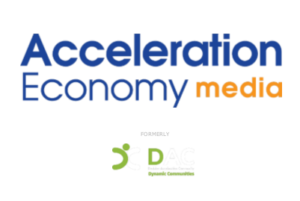Understanding the Modern Lifecycle for Dynamics GP

Since version 18.2 (GP2020) which was released in October 2019, Dynamics GP has been on the Microsoft “Modern Lifecycle Policy.”
What does this mean and how does it affect users?
This post is designed to help you understand how the Modern Lifecycle Policy affects you and your Dynamics GP system.
Microsoft Modern Lifecycle Policy
Per Microsoft, “the Modern Lifecycle Policy covers products and services that are serviced and supported continuously. Under this policy, the product or service remains in support if the following criteria are met:
- Customers must stay current as per the servicing and system requirements published for the product or service;
- Customers must be licensed to use the product or service;
- Microsoft must currently offer support for the product or service.”
Let’s break this down…
These criteria are very important and differ from what we all have known for the last 30 years.
The first criterion is defined by the Products Modern Lifecycle definition. It means that you must be on the current or supported version offered by Microsoft to receive ANY help from Microsoft. This applies to Partners also. So, if you or your Partner initiates a support call to Microsoft, you will be required to be on the supported version. The other consideration you need to manage is the “system requirements” part of the policy. You will also need to keep the Client and server environments needed to run the version of software managed by the Modern Lifecycle Policy up to date.
The second criterion simply means you must own and be current on your license/support agreement.
Finally, the last criterion suggests that Microsoft must be supporting the product.
Why Modern Lifecycle?
The idea is simple. Microsoft and other software vendors, in general, want their customers to be on the newest version of their products. Many reasons for this include the efficiency of the customer experience as well as the ability to provide internal product support by the software vendor. As an ISV and software developer for over 30 years, it becomes very expensive and at times, not possible to support some older versions.
Thus, when you get ready to initiate a support call to Microsoft, you will first need to be on the newest software version possible. Remember, they may have already fixed your issue in a newer release of the software, recognizing others had your very same problem. Due to the ever-increasing complexity of ERP systems, it has become impossible for any software vendor to test every possible combination of events. Additionally, trying to find the perfect support member who understands every area of the product, and can troubleshoot in a timely manner, is not realistic (or economical!). Keeping the amount of “supported” versions to just the current release or the prior allows everyone to handle support issues better.
From the customer’s perspective, this is not how we were accustomed to managing upgrades. In the past, knowing they required a lot of time and effort, they were planned months in advance. For better or worse, this is the new reality we all face. Another consideration you need to understand is as stated in point #1 of the Modern Lifecycle Policy – your systems need to also meet the minimum defined system requirements for the software product.
Unfortunately, we will all need to adapt and change our processes for updates.
Product Specific Policy
Each product that is on the Modern Lifecycle Policy has its additional product policy definitions. For those NON-Dynamics GP people, you will need to look yours up separately, as I am only discussing Dynamics GP in this post. For your reference, here are the Business Central policy links and the link to search all Microsoft Products Modern Lifecycle definitions.
- Dynamics 365 Business Central
- Dynamics 365 Business Central on-premises (Modern Policy)
- Dynamics 365 Business Central on-premises (Fixed Policy)
- This Fixed Policy has and End Date of October 17, 2025
- Search Product and Service Lifecycle for all other Microsoft products
Dynamics GP – Modern Lifecycle
The Dynamics GP Modern Lifecycle is defined as “offering continuous support and servicing, including bug fixes and the latest tax updates”.
To be eligible for support from Microsoft on the Modern Lifecycle Policy it states:
“Under this policy, Dynamics GP customers stay current by taking at least one of the three all-inclusive Dynamics GP updates, typically released in June, October, and December each year.”
What does this all mean? For Dynamics GP users on the Modern Lifecycle Policy, in order to obtain support from Microsoft, customers need to:
1. Be on a version of Dynamics GP that was released within the last three updates (12 months).
Example: As of 01/01/2024, you will need to be on version 18.5.1635 (Jan 2023) to receive any support from Microsoft.
2. Your client and server environments will need to be on the minimum system specifications, as defined by the version of Dynamics GP you are on.
Dynamics GP – Fixed Lifecycle Policy
The Fixed Lifecycle Policy is the old way that support and updates were defined before October 2019. They had a pre-set date and time for that specific version and didn’t require the customer to keep current with the newest versions of the software.
Dynamics GP versions that still have Extended Support available as of January 01, 2024, are:
- Dynamics GP 2015 / R2
- Ends on April 6, 2025
- Dynamics GP 2016 / R2
- Ends on July 14, 2026
- Dynamics GP 2018 / R2
- Ends on January 11, 2028
You need to understand that Extended Support as defined by Microsoft only requires it to release updates that relate to security vulnerabilities. Additionally, if a bug is found with the product, Microsoft will not fix it unless it causes a security issue.
This also means there are NO tax or regulator updates for any version of Dynamics GP that are not on the Modern Lifecycle.
Dynamics GP – New Sales
Microsoft announced on April 1, 2023, its intention to stop selling Dynamics GP Licenses to any NEW customers on the following dates:
- Perpetual Licenses Sales
- Ends on April 1, 2025
- Subscription Licenses Sales
- Ends on April 1, 2026
Note that this is for NEW customer sales ONLY.
The customers that don’t have Dynamics GP, or Dynamics GP customers that have an old version and are not current on their support agreements with Microsoft and want to purchase Dynamics GP have until those dates.
The two types of available licenses are:
- Perpetual License: The purchase of the license up front. Separate yearly support fees will apply thereafter.
- Subscription License: The monthly payment per user license. Support fees are included in the monthly cost.
Those customers who are current with their support agreements can purchase additional user licenses and/or modules with no current end date.


